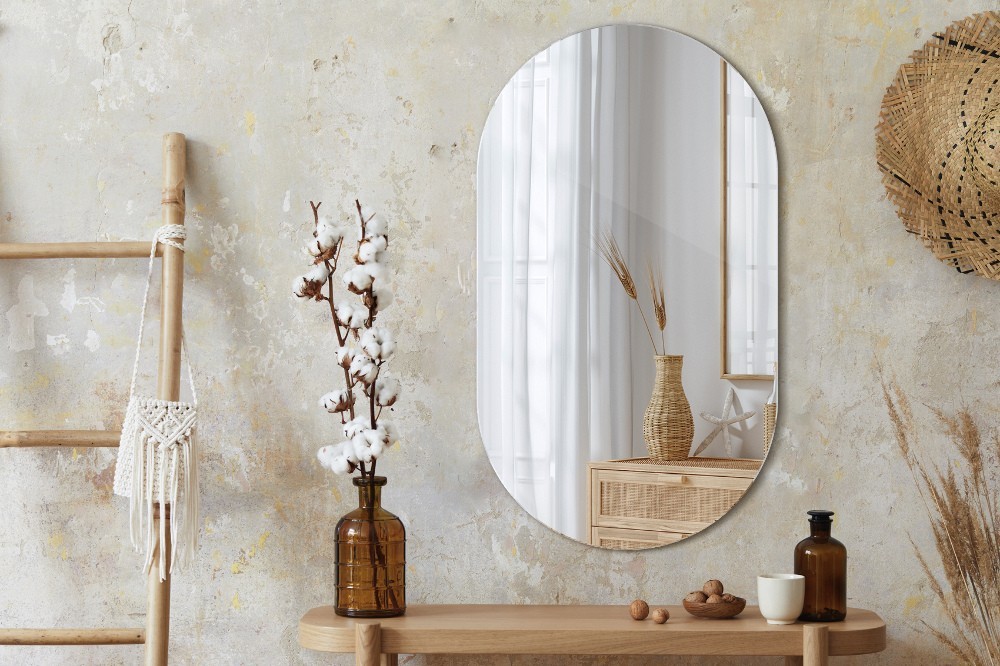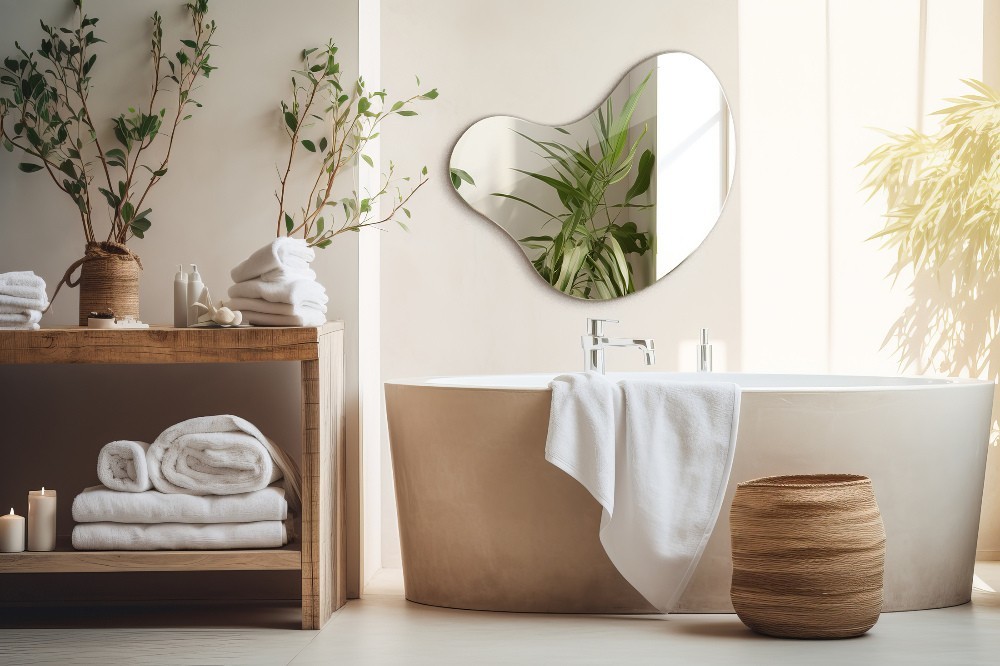Which makeup mirror?
In this step-by-step guide, we will show you how to choose a mirror that will meet your needs, match the style of the interior and help you achieve the perfect effect without compromise.

An integral part of our daily lives, mirrors have fascinated people all over the world for centuries. In various cultures, mirrors are not only objects of everyday use, but also powerful symbols, objects of myths and legends.
In Chinese culture, mirrors have played an important role in both everyday life and beliefs. Traditionally, mirrors were used to ward off evil spirits and negative energy. It was believed that mirrors reflected evil forces, preventing them from entering the house. Therefore, mirrors were often placed opposite the front door or above the fireplace.
In the Chinese art of Feng Shui, mirrors are considered powerful tools for managing Qi energy in space. One myth is the story of an ancient Feng Shui master who used mirrors to protect homes from negative energy. The master advised placing mirrors opposite the front door to reflect and neutralise evil spirits trying to enter. This made the house a place of harmony and peace.
Legend tells of Emperor Zhao, who possessed a magic mirror capable of revealing people's true nature. In this mirror, anyone could see their true face, no matter how well they hid their intentions. One day, the emperor used the mirror to test the loyalty of his ministers. Those who were false were exposed and punished, while those who were faithful were rewarded. Zhao's mirror has become a symbol of truth and justice in Chinese culture.
In ancient times, it was believed that mirrors could capture and reflect the souls of the dead. According to one legend, on the Day of the Dead, when the souls of ancestors return to their families, mirrors were covered so that the souls would not be accidentally trapped in their reflections. It was believed that spirits could be confused by their reflection and instead of returning to the hereafter, they could remain trapped on Earth. Covering the mirrors was thought to ensure that ancestral souls would peacefully return to their resting place.

In European culture, mirrors have long been regarded as mysterious and magical objects. In the Middle Ages, mirrors were used in divination practices such as scrying (mirror divination), where a fortune teller would look into a mirror for visions of the future.
In Greek mythology, the story of Narcissus is one of the most famous myths associated with mirrors. Narcissus was a beautiful young man who fell in love with his own reflection in water. Unable to tear himself away from his image, he died of longing and was transformed into a Narcissus flower. The story has become a symbol of vanity and self-indulgence, and the mirror a tool to show us our inner flaws and qualities.
In Hans Christian Andersen's classic fairy tale The Snow Queen, a magic mirror plays a key role. The mirror, created by an evil troll, has the power to distort reality, showing only the bad and the ugly. When fragments of the mirror fall into little Kai's eyes and heart, his vision of the world changes to a negative one, leading to his abduction by the Snow Queen. This story symbolises how perception can be distorted by negative influences.
There is also a common superstition in European culture that breaking a mirror brings seven years of misfortune. The source of this belief is the ancient Roman belief that mirrors have the ability to capture fragments of our soul. Destroying a mirror was believed to damage the soul, which takes seven years to regenerate. This superstition has come to symbolise the fragility of the human soul and the need to handle things that reflect it with care.

In African cultures, mirrors have their own unique meanings and uses. It is believed that mirrors can serve as portals to other worlds or dimensions. Shamans and healers used mirrors in their rituals to communicate with ancestral spirits or to predict the future.
It was also believed that mirrors could serve as portals to other worlds or dimensions. Shamans and healers often used mirrors during rituals to make contact with ancestral spirits or other spirit beings. Mirrors were seen as tools to communicate with the unseen world, and their surface was a place where spirits could appear and speak.
In some African communities, mirrors were used as protective amulets. It was believed that mirrors could reflect evil charms and negative energies, protecting the owner from curses and malevolent spirits. Mirrors were often placed in homes or worn as talismans to provide safety and protection from unseen threats.
In some traditions, mirrors were considered status and power symbols. Due to their rarity and value, mirrors were mainly possessed by people of high social standing, such as chiefs, kings or important healers. The possession of a mirror could signify wealth and influence, and was also used in ceremonies to emphasise the prestige and authority of the owner.

Mirrors have long fascinated artists and writers, becoming a central motif in many literary and artistic works. In literature, mirrors often symbolise introspection and self-awareness. An example is Lewis Carroll's Alice on the Other Side of the Mirror, where the mirror is a gateway to an alternative reality, full of wonder and mystery.
In visual art, mirrors are used to explore themes such as identity, perception and illusion. Painters such as Diego Velázquez and Jan van Eyck used mirrors in their paintings to create complex, multi-layered compositions that invite the viewer to reflect on the nature of reality and art.
As everyday objects, mirrors conceal an extraordinary wealth of symbolic and mythological meanings. In various cultures around the world, mirrors have been and continue to be seen as powerful tools that can reveal truth, protect against evil and even open doors to other worlds. The fascinating stories and legends associated with mirrors show how deeply rooted they are in human imagination and culture, making them not only practical but also extremely mysterious objects.
In this step-by-step guide, we will show you how to choose a mirror that will meet your needs, match the style of the interior and help you achieve the perfect effect without compromise.
Two mirrors in the bathroom are not only a trend, but also a functional solution. Check when they work, how to choose them and how to avoid arrangement mistakes.